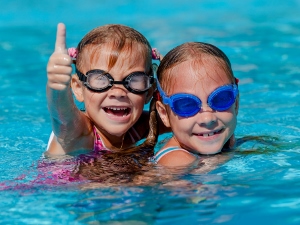
NZEI Te Riu Roa National President Louise Green says swimming is part of the school curriculum but pool access is becoming an equity issue.
In the past decade around 20 per cent of schools that had pools have shut them down because they can’t afford the maintenance and compliance costs.
“The Ministry of Education does provide some funding towards school pool upkeep but it goes nowhere near the real cost of running a pool and that’s why schools have either closed their swimming pools down or had to go to their communities for funding,” Ms Green said.
“Obviously this hits poorer communities hardest. Many schools now send children to local community pools but this can also be a prohibitive cost. It places a big strain on schools as they have to work very hard to find sponsorship and other solutions.”
In Tauranga, Merivale School principal Jan Tinetti agrees that lack of affordability is a major barrier for swimming and water safety lessons for many children.
She said students at her decile 1 school had missed out on swimming and water safety lessons for two years because of the cost.
“Until we secured sponsorship through Water Safety NZ and charities, there was no way we could afford the $5 per child per session cost of swimming instruction at the community pool. And very few of our students were able to access private swimming lessons.”
She said through sponsorship students now received two weeks a year of lessons. But they still had a 2.4-kilometre walk to the pool each way to save the cost of bus fares.
“We concentrate on teaching about water safety because that’s the big risk for our kids. They mostly swim in rivers or in the sea.”
Louise Green said the Government needed to take this issue seriously because it once again highlighted the growing inequality in our schooling.
“All children should have access to swimming and water safety learning. It’s part of the curriculum and should not be overlooked by policymakers.”
The much-delayed English draft curriculum is now out for consultation, generating discussion from teachers.
Research from AUT demonstrates arts, culture and recreation have positive impacts on all aspects of…
How effective has the school phone ban been in achieving its aims? Researchers from the…
School camps and excursions deliver hands on learning experiences, helping to consolidate classroom learning.
Innovations in AV technologies present new opportunities to engage with students. We look at how…
A new report from the University of Auckland’s Our Voices Project asks young people what…
This website uses cookies.